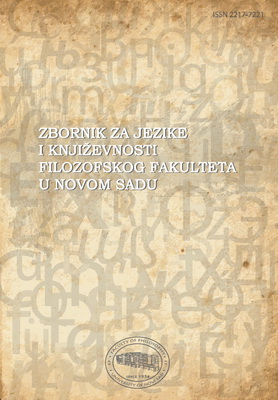FUNKCIJSKE PROJEKCIJE U SRPSKOM NOMINALNOM KOMPLEKSU
FUNCTIONAL PROJECTIONS IN THE SERBIAN NOMINAL COMPLEX
Author(s): Predrag S. Kovačević, Milan M. PupezinSubject(s): Language and Literature Studies, Syntax, Semantics
Published by: Филозофски факултет, Универзитет у Новом Саду
Keywords: DP; definiteness; adjectives; Degree Phrase; Case Phrase;
Summary/Abstract: The goal of this paper is to argue that DP does not exist in Serbian and long and short forms of adjectives do not correspond to the definite/indefinite distinction on nouns. First we examine the applicability of the existing DP models in Serbian, which are based primarily on the existence and positioning of possessive and demonstrative pronouns along with the “long” as opposed to the “short” form of adjectives. Considering the fact that inherently definite elements such as demonstratives and possessives behave in a manner similar to adjectives (their case form is dictated by the noun, they do not function as the morphosyntactic locus and do not inhibit left branch extractions (Zlatić, 1998; Trenkić, 2004; Bošković, 2005)) we conclude that DP projections in Serbian, as such, do not exist. Instead, we consider KP (Case Phrase) the principal functional projection of the NP, as it demands case agreement of all adjunts within the NP (including demonstrative and possessive pronouns as well as any adjectives). Furthermore, we observe the concept of definiteness and indefiniteness as signaled by the long and short adjectives to be features related strictly to the AP. The complementary distribution of intensifiers and the short, “indefinite” form of adjectives suggests a feature common to both intensifiers and the long forms of adjectives. We contribute this feature, along with the impossibility of co-occurrence between intensifiers and adjectives that belong to the class of complementary antonyms, to the semantics of adjectives, specifically to the degree of a certain feature expressed by scalar adjectives. Hence we interpret the long form of adjectives as a means of expressing an implicit comparison with the default degree in which a certain feature is present. Finally, we propose a model of a degree phrase (DgrP) as a functional projection of the adjective phrase.
Journal: Zbornik za jezike i književnosti Filozofskog fakulteta u Novom Sadu
- Issue Year: 5/2015
- Issue No: 5
- Page Range: 21-31
- Page Count: 10
- Language: Serbian

